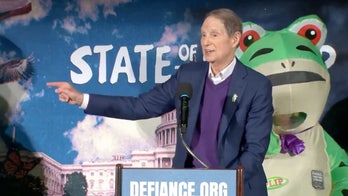Smokers may have to pay higher Medicaid payments
Lawmaker aims at tax savings, getting smokers to quit
Lower-income smokers in Utah may soon have to pay more for a doctor's visit if they continue the unhealthy habit. That is, if a bill currently making its way through the state legislature passes.
State Representative Paul Ray, R., is the author of the proposal to charge a Medicaid recipient a higher co-pay for doctor visits if he or she smokes cigarettes.
Currently in Utah, recipients do not pay premiums but have small co-pays for office visits and prescriptions.
"It's to offset the costs you're bringing to the tax payers," Ray said, "by choosing to smoke and put your health at risk."
Ray said the amount would likely range between $2 and $3, although the actual cost to patients has not been pinned down yet.
Remy Earnhart and his friend, Dallas, both smokers who appear to be in their 20s, said that if passed this new requirement would not stop them from smoking.
"I think it's freedom of choice, actually. It shouldn't affect us," said Earnhart.
Ray said he agrees with the first part of that statement. Even though the low-income health program is largely funded with federal dollars, Ray said smokers still cost Medicaid in Utah $104 million in 2009 for treating tobacco-related illnesses.
"I'm tired of tax payers footing the bill for people who are making bad health choices and expecting free health care. And then secondly, (the goal) is to get people to quit smoking," he said.
The American Lung Association, while vehemently anti-smoking, does not think this is the best way to get smokers to kick the habit.
"We think that there'll be more heart attacks, you know more lung disease problems," said Christian Stumpf of the American Lung Association.
Additionally, he said, should the Ray bill pass, it will likely end up costing the state of Utah more in the long run. "People who are poor are less likely to pay out of pocket to go seek the treatment that they need. You know, and with smokers tending to get sick more often than people will be less likely to seek preventative care."
This is not Ray's first go-around with smoking tobacco. He pushed to get his state to raise the sales tax on packs and was behind other anti-smoking initiatives in Utah.
The reason behind his fervor is personal. Ray's mother is sick, with a diagnosis of emphysema.
"She was a two-pack-a-day smoker, my father smoked, (and) died because of smoking. I've lived around the health effects, I've had four open heart surgeries. (My) mother smoked when she was pregnant with me, I was born with a birth defect in the aortic valve because of that. I know firsthand what the effects of smoking are and how it affects peoples’ lives."
Many private health insurers and companies already place sanctions on smokers. But this is the first known attempt to apply the idea to Medicaid.
Ray says he anticipates a hot debate if his bill makes it to the Utah House floor.













































